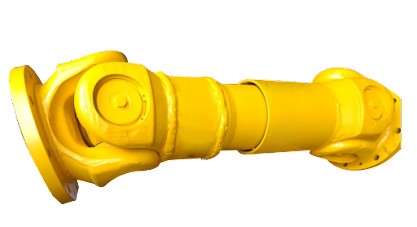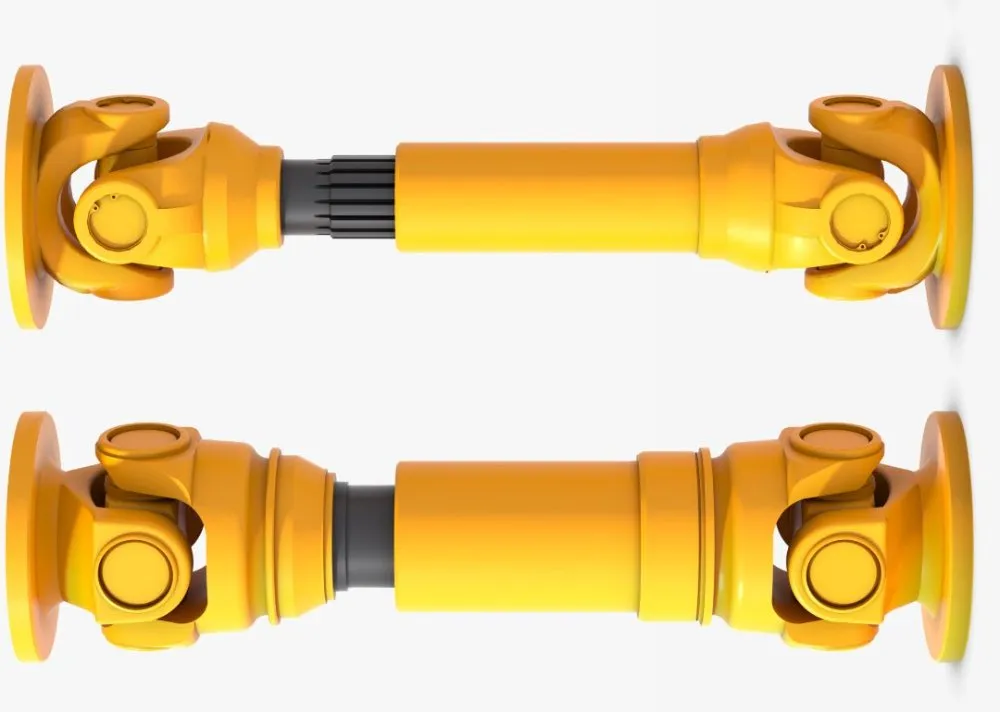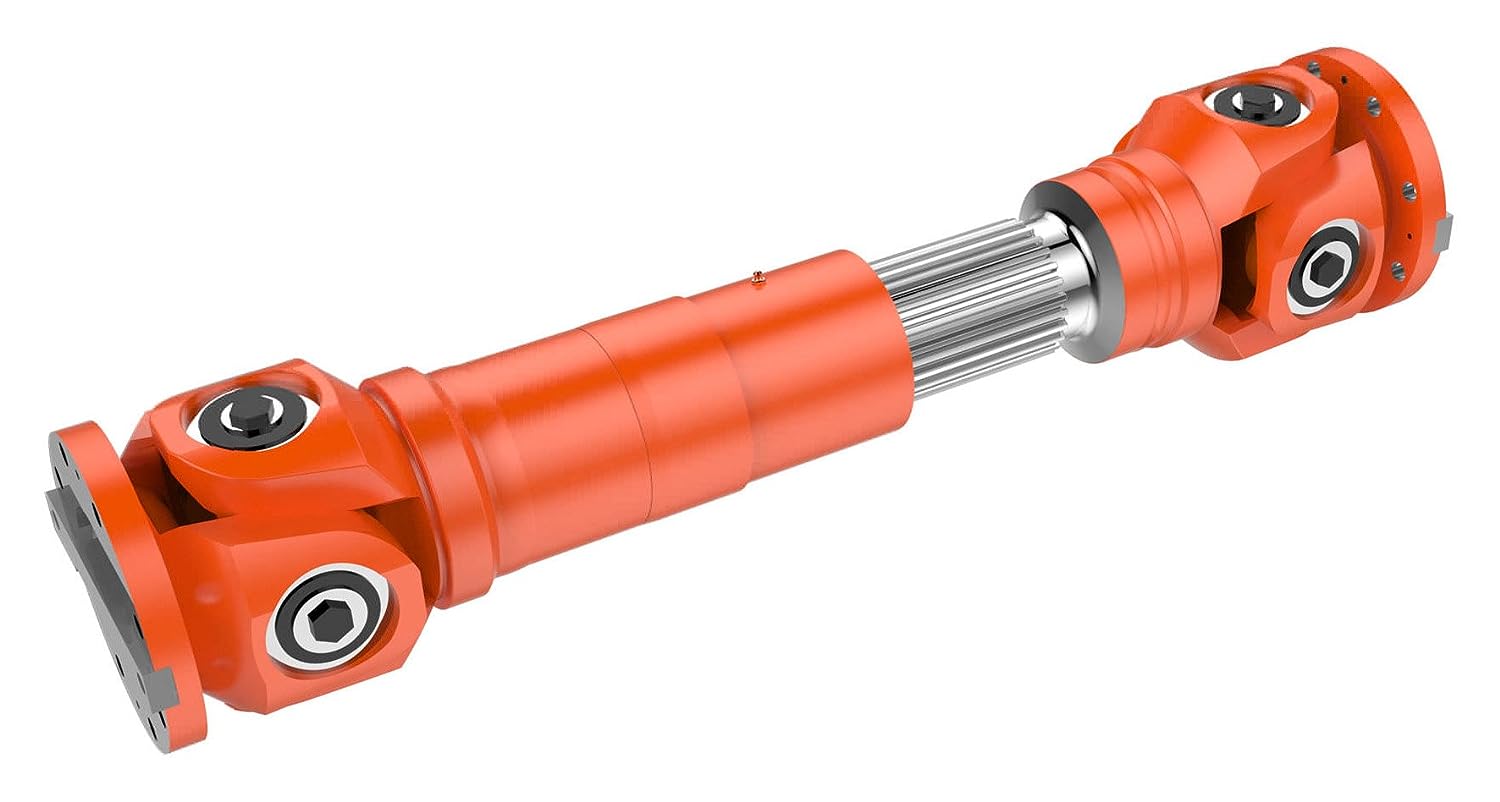Product Description
As a professional manufacturer for propeller shaft, we have +8 25995545
for CHEVROLET Traverse 09-11
For some items, we have stock, small order (+3000USD) is welcome.
The following items are some of propeller shafts, If you need more information, pls contact us for ASAP.
|
for CHEVROLET PROPELLER SHAFT |
|||
|
OEM |
Application |
OEM |
Application |
| 65-9757 | for CHEVROLET | 946-199 | for CHEVROLET Silverado 1500 07-13 |
| 65-9759 | for CHEVROLET | 2571697 | for CHEVROLET Silverado 1500 07-13 |
| 65-9355 | for CHEVROLET Astro 90-98 | 10382040 | for CHEVROLET Silverado 1500 2006 |
| 65-9146 | for CHEVROLET Astro 99-05 | 65-9527 | for CHEVROLET Silverado 1500 99-00 |
| 65-9395 | for CHEVROLET Avalanche 1500 02 | 65-9307 | for CHEVROLET Silverado 1500 99-01 |
| 65-9334 | for CHEVROLET Blazer 73-74 | 15094629 | for CHEVROLET Silverado 1500 99-05 |
| 65-9333 | for CHEVROLET Blazer 73-74 | 15109400 | for CHEVROLET Silverado 1500 99-05 |
| 65-9369 | for CHEVROLET Blazer 92-94 | 15189834 | for CHEVROLET Silverado 1500 99-06 |
| 15114531 | for CHEVROLET Blazer 95-05 | 946-047 | for CHEVROLET Silverado 1500 99-07 |
| 15038493 | for CHEVROLET Blazer 96-05 | for CHEVROLET Silverado 2500 01 | |
| 946-030 | for CHEVROLET Camaro 10-15 | 15571402 | for CHEVROLET Silverado 2500 01-03 |
| 20781756 | for CHEVROLET Captiva 10-20 | 65-9518 | for CHEVROLET Silverado 2500 01-06 |
| 65-9516 | for CHEVROLET Colorado 04-12 | 65-9520 | for CHEVROLET Silverado 2500 01-06 |
| 936-291 | for CHEVROLET Colorado 04-12 | 65-9827 | for CHEVROLET Silverado 2500 01-07 |
| 19259831 | for CHEVROLET Equinox 05-06 | 65-9310 | for CHEVROLET Silverado 2500 99-00 |
| 19328628 | for CHEVROLET Equinox 07-09 | 15271513 | for CHEVROLET Silverado 2500HD 07-10 |
| 84139112 | for CHEVROLET Equinox 18-20 | 946-304 | for CHEVROLET Silverado 3500 01-06 |
| 22889825 | for CHEVROLET Express 1500 03-14 | 15571431 | for CHEVROLET Silverado 3500 04-06 |
| 1529571 | for CHEVROLET EXPRESS 4500 09- | 15016993 | for CHEVROLET Silverado 3500 Classic 07 |
| 65-9338 | for CHEVROLET K10 Pickup 77-80 | 25857887 | for CHEVROLET Silverado 3500HD 07-09 |
| 2657162 | for CHEVROLET K1500 95-98 | 936-406 | for CHEVROLET Traiblazer 06-08 |
| 65-9361 | for CHEVROLET K1500 95-99 | 1557115 | for CHEVROLET Traiblazer 07-09 |
| 65-9362 | for CHEVROLET K1500 95-99 | 65-9329 | for CHEVROLET Trailblazer 02-05 |
| 65-9337 | for CHEVROLET K20 77-80 | 936-499 | for CHEVROLET Trailblazer 02-09 |
| 65-9339 | for CHEVROLET K20 81-86 | 65-1000 | for CHEVROLET Traverse 09-11 |
| 65-9346 | for CHEVROLET K2500 88-94 | 65-9349 | for CHEVROLET V1500 SUBURBAN 1991 |
| 65-9344 | for CHEVROLET K2500 88-94 | 25857868 | for CHEVROLETE Silverado 2500 07-10 |
| 65-9348 | for CHEVROLET K2500 92-94 | 84139112 | CHEVY Equinox/Terrain 18-20 |
| 26038121 | for CHEVROLET K2500 95-00 | 15571424 | for CHEVROLET Sierra 3500 01-06 |
| 65-9336 | for CHEVROLET K30 77-79 | 65-9371 | for CHEVROLET Silverado 01-06 |
| 65-9351 | for CHEVROLET K30 80-86 | 15751438 | for CHEVROLET Silverado 02-05 |
| 65-9353 | for CHEVROLET K30 80-86 | 65-9519 | for CHEVROLET Silverado 1500 01-07 |
| 65-9347 | for CHEVROLET K3500 92-94 | 10382034 | for CHEVROLET SILVERADO 1500 05-06 |
/* January 22, 2571 19:08:37 */!function(){function s(e,r){var a,o={};try{e&&e.split(“,”).forEach(function(e,t){e&&(a=e.match(/(.*?):(.*)$/))&&1
| After-sales Service: | 1 Year |
|---|---|
| Condition: | New |
| Color: | Black |
| Certification: | ISO, IATF |
| Type: | Propeller Shaft/Drive Shaft |
| Application Brand: | Chevrolet/Buick |
| Samples: |
US$ 300/Piece
1 Piece(Min.Order) | |
|---|
| Customization: |
Available
| Customized Request |
|---|

Are there any limitations or disadvantages associated with cardan shaft systems?
While cardan shaft systems offer numerous advantages, they also have some limitations and disadvantages that should be considered. Let’s explore these limitations in detail:
1. Angular Misalignment:
– Cardan shafts are designed to accommodate angular misalignment between the driving and driven components. However, excessive misalignment can lead to increased wear, vibration, and decreased efficiency. If the misalignment exceeds the recommended limits, it can put additional stress on the universal joints and other components, reducing the lifespan of the shaft and potentially causing mechanical failures.
2. Noise and Vibration:
– Cardan shaft systems can introduce noise and vibration into the equipment or vehicle. The universal joints and slip yokes in the shaft assembly can generate vibrations as they rotate, especially at high speeds. These vibrations can contribute to increased noise levels, potentially causing discomfort for passengers or affecting the performance of sensitive equipment. Proper balancing and maintenance of the shaft can help mitigate these effects, but they may still be present to some extent.
3. Maintenance and Lubrication:
– Cardan shaft systems require regular maintenance and lubrication to ensure optimal performance and longevity. The universal joints and slip yokes need to be properly lubricated to minimize friction and wear. If maintenance is neglected, the joints can wear out quickly, leading to increased vibration, noise, and potential failure. Regular inspections and lubrication are necessary to maintain the efficiency and reliability of cardan shaft systems.
4. Limited Flexibility in High-Speed Applications:
– Cardan shafts have limitations when it comes to high-speed applications. At high rotational speeds, the centrifugal forces acting on the rotating components can cause significant stress on the shaft and universal joints. This can result in increased wear, reduced lifespan, and potential failure. In such cases, alternative power transmission systems such as constant-velocity (CV) joints or direct drives may be more suitable.
5. Space and Weight Constraints:
– Cardan shaft systems require sufficient space for installation due to their length and telescopic design. In applications with limited space constraints, it may be challenging to accommodate the full length of the shaft, or modifications may be necessary to ensure proper fit. Additionally, the weight of the shaft can be a consideration, especially in applications where weight reduction is crucial. In such cases, alternative lightweight materials or drive systems may be more appropriate.
6. Cost:
– Cardan shaft systems can be relatively costly compared to other power transmission options. The complexity of their design, the need for customization, and the use of multiple components contribute to higher manufacturing and installation costs. However, it’s important to consider the overall benefits and performance of cardan shaft systems when evaluating their cost-effectiveness for specific applications.
7. Limited Misalignment Compensation:
– While cardan shafts can accommodate angular misalignment, they have limitations when it comes to compensating for other types of misalignment, such as parallel offset or axial displacement. In applications that require significant compensation for these types of misalignment, alternative power transmission systems with more advanced flexibility, such as flexible couplings or CV joints, may be more suitable.
Despite these limitations, cardan shaft systems remain widely used and offer numerous advantages in various applications. By understanding these limitations and considering the specific requirements of the application, engineers can make informed decisions regarding the suitability of cardan shaft systems or explore alternative power transmission options.

Are there any emerging trends in cardan shaft technology, such as lightweight materials?
Yes, there are several emerging trends in cardan shaft technology, including the use of lightweight materials and advancements in design and manufacturing techniques. These trends aim to improve the performance, efficiency, and durability of cardan shafts. Here are some of the notable developments:
1. Lightweight Materials:
– The automotive and manufacturing industries are increasingly exploring the use of lightweight materials in cardan shaft construction. Materials such as aluminum alloys and carbon fiber-reinforced composites offer significant weight reduction compared to traditional steel shafts. The use of lightweight materials helps reduce the overall weight of the vehicle or machinery, leading to improved fuel efficiency, increased payload capacity, and enhanced performance.
2. Advanced Composite Materials:
– Advanced composite materials, such as carbon fiber and fiberglass composites, are being utilized in cardan shafts to achieve a balance between strength, stiffness, and weight reduction. These materials offer high tensile strength, excellent fatigue resistance, and corrosion resistance. By incorporating advanced composites, cardan shafts can achieve reduced weight while maintaining the necessary structural integrity and durability.
3. Enhanced Design and Optimization:
– Advanced computer-aided design (CAD) and simulation techniques are being employed to optimize the design of cardan shafts. Finite element analysis (FEA) and computational fluid dynamics (CFD) simulations allow for better understanding of the structural behavior, stress distribution, and performance characteristics of the shafts. This enables engineers to design more efficient and lightweight cardan shafts that meet specific performance requirements.
4. Additive Manufacturing (3D Printing):
– Additive manufacturing, commonly known as 3D printing, is gaining traction in the production of cardan shafts. This technology allows for complex geometries and customized designs to be manufactured with reduced material waste. Additive manufacturing also enables the integration of lightweight lattice structures, which further enhances weight reduction without compromising strength. The flexibility of 3D printing enables the production of cardan shafts that are tailored to specific applications, optimizing performance and reducing costs.
5. Surface Coatings and Treatments:
– Surface coatings and treatments are being employed to improve the durability, corrosion resistance, and friction characteristics of cardan shafts. Advanced coatings such as ceramic coatings, diamond-like carbon (DLC) coatings, and nanocomposite coatings enhance the surface hardness, reduce friction, and protect against wear and corrosion. These treatments extend the lifespan of cardan shafts and contribute to the overall efficiency and reliability of the power transmission system.
6. Integrated Sensor Technology:
– The integration of sensor technology in cardan shafts is an emerging trend. Sensors can be embedded in the shafts to monitor parameters such as torque, vibration, and temperature. Real-time data from these sensors can be used for condition monitoring, predictive maintenance, and performance optimization. Integrated sensor technology allows for proactive maintenance, reducing downtime and improving the overall operational efficiency of vehicles and machinery.
These emerging trends in cardan shaft technology, including the use of lightweight materials, advanced composites, enhanced design and optimization, additive manufacturing, surface coatings, and integrated sensor technology, are driving advancements in the performance, efficiency, and reliability of cardan shafts. These developments aim to meet the evolving demands of various industries and contribute to more sustainable and high-performing power transmission systems.
What benefits do cardan shafts offer for different types of vehicles and equipment?
Cardan shafts, also known as propeller shafts or drive shafts, offer numerous benefits for different types of vehicles and equipment. Their versatile design and functionality make them an essential component in various applications. Here are the key benefits that cardan shafts provide for different types of vehicles and equipment:
1. Efficient Power Transmission:
– Cardan shafts ensure efficient power transmission from the engine or power source to the wheels or driven components. In vehicles, such as cars, trucks, and buses, cardan shafts transmit torque from the gearbox or transmission to the differential, enabling the wheels to rotate and propel the vehicle forward. In equipment and machinery, cardan shafts transfer rotational power from the power source, such as an engine or motor, to driven components like pumps, conveyors, or generators. By efficiently transmitting power, cardan shafts contribute to the overall performance and productivity of vehicles and equipment.
2. Flexibility and Misalignment Compensation:
– Cardan shafts offer flexibility and the ability to compensate for misalignment between the driving and driven components. This flexibility is crucial in vehicles and equipment where the engine or power source may not be directly aligned with the wheels or driven machinery. Cardan shafts incorporate universal joints at each end, allowing for angular misalignment and accommodating variations in the relative positions of the components. This feature ensures smooth power transmission, reduces stress on the drivetrain, and enhances the overall maneuverability and performance of vehicles and equipment.
3. Adaptability to Variable Configurations:
– Cardan shafts are adaptable to variable configurations and adjustable setups. In vehicles, they can accommodate changes in the wheelbase or suspension system, allowing for different vehicle sizes and configurations. For example, in trucks with multiple axles, cardan shafts can be adjusted to compensate for varying distances between the axles. In equipment and machinery, cardan shafts can be designed with telescopic sections or sliding splines, enabling length adjustment to accommodate changes in the distance between the power source and driven components. This adaptability makes cardan shafts suitable for a wide range of vehicle and equipment configurations.
4. Vibration Damping and Smooth Operation:
– Cardan shafts contribute to vibration damping and enable smooth operation in vehicles and equipment. The universal joints in cardan shafts help absorb and dampen vibrations that may arise from the power source or drivetrain. By allowing slight angular deflection and compensating for misalignment, cardan shafts reduce the transmission of vibrations to the vehicle or equipment, resulting in a smoother and more comfortable ride for passengers or operators. Additionally, the balanced design of cardan shafts minimizes vibration-induced wear and extends the lifespan of associated components.
5. Safety and Protection:
– Cardan shafts incorporate safety features to ensure the protection of both the vehicle or equipment and the operator. For example, in vehicles, cardan shafts often have shielding or guards to prevent contact with rotating components, reducing the risk of accidents or injuries. In some applications, cardan shafts may also include safety mechanisms such as shear pins or torque limiters. These features are designed to protect the shaft and other components from damage by shearing or disengaging in the event of overload or excessive torque, preventing costly repairs and downtime.
6. Suitable for Various Applications:
– Cardan shafts find applications in a wide range of vehicles and equipment across different industries. In the automotive sector, they are used in passenger cars, commercial vehicles, buses, and off-road vehicles to transmit power to the wheels. In the agricultural industry, cardan shafts connect tractors to various implements, such as mowers, balers, or tillers. In the construction and mining sectors, they are employed in machinery like excavators, loaders, and crushers to transfer power to different components. The versatility of cardan shafts makes them well-suited for various applications, providing reliable power transmission and motion.
In summary, cardan shafts offer several benefits for different types of vehicles and equipment. They ensure efficient power transmission, flexibility, and misalignment compensation, adaptability to variable configurations, vibration damping, and smooth operation. Additionally, they incorporate safety features and are suitable for a wide range of applications in automotive, agricultural, construction, and other industries. Cardan shafts play a vital role in enhancing the performance, maneuverability, and safety of vehicles and equipment, contributing to overall productivity and reliability.


editor by CX 2024-03-19